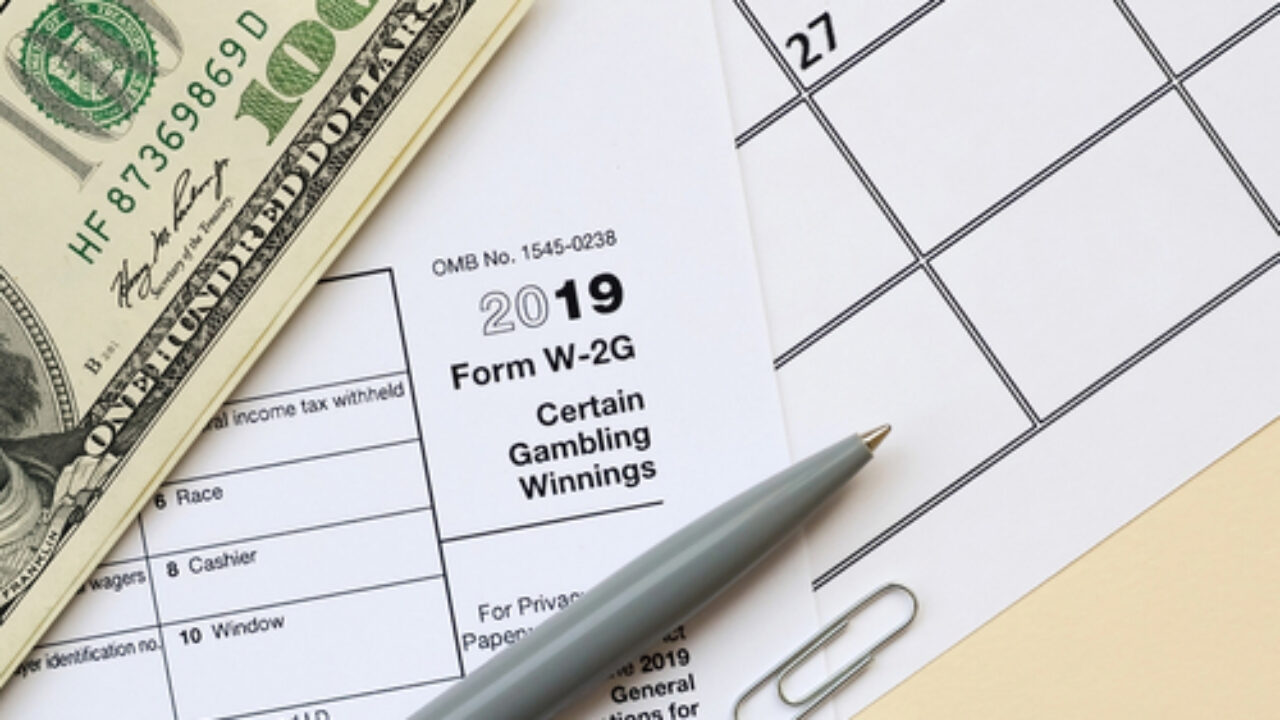Does Casino Report Winnings Irs
- Reporting Gambling Winnings Irs
- Does Chumba Casino Report Winnings To Irs
- Does Casino Report Winnings Irs Fraud
We doubt that anyone ever woke up thinking, “Gee, I hope I get audited by the IRS this year”. An IRS audit could easily be one of the worst things that could happen to you this year. So if you want to avoid receiving that ominous letter from the IRS that your 2015 tax return is being audited here are seven red flags you need to totally avoid.

Not reporting all of your taxable income
Those 1099’s and W-2s you received this past January? You weren’t the only one that got them. The IRS got them too. It’s important to make sure you report all of the required income on your return. The computers used by the IRS are pretty darn good at matching the numbers on your return with the numbers on your 1099s and W-2s. If they turn up a mismatch this will create a red flag and the IRS computers will spit out a bill. If those darn computers do make a mistake and you receive a tax form that shows income that wasn’t yours or lists incorrect amounts of income, you will need to get the issuer to file the correct form with the IRS. And what about that income you earned on those side jobs? In most cases you should have received a 1099 documenting your earnings. If not, this is definitely a case where it’s better to be safe than sorry and report it.
The casino will divide the winnings among the players and will subsequently report them on separate Forms W-2G to the IRS under the names of each of the winners. The IRS provides an interactive tool to help you figure all this out and properly claim your winnings and losses. It takes about 10 minutes to complete. If you’re a professional gambler you will need to report your winnings on Schedule C. If you don’t report gambling winnings this can draw the attention of the IRS – especially in the event that the casino or other venue reported your winnings on form W-2G. It can also be very risky to claim big gambling losses. The IRS will receive a report from a casino or other payer about the gambling winnings of those lucky enough to be on the receiving end of one of the following: $600 or more in winnings worth at least 300 times the wager (such as hitting the lottery, a wildly successful sports parlay or long-shot racetrack trifecta).
Taking deductions that are higher than average
If the IRS spots deductions on your return that are disproportionately large in comparison with your income, it may pull your return for review. For example, a very large medical expense –again out of proportion to your income – could cause a red flag. However, if you do have the documentation to support the deduction then don’t be afraid to claim it.
Claiming really big charitable deductions
Charitable deductions can be a great write off. Plus, when you contribute to a charity it can make you feel all fuzzy and warm inside. However, if those deductions are disproportionately large in comparison with your income, it will raise a red flag. The reason for this is because the IRS knows what is the average charitable deduction for people at your level of income. Did you donate some very valuable property? In this case we hope you got an appraisal for it. Did you make a non-cash donation over $500? Then you better make sure you file form 8283. if you don’t file this form or if you don’t have an appraisal supporting that big donation you’ll become an even bigger target for auditing.
Claiming big gambling losses or not reporting gambling winnings

If you’re a recreational gambler you must report your winnings as “other income” on the front page of your 1040 form. If you’re a professional gambler you will need to report your winnings on Schedule C. If you don’t report gambling winnings this can draw the attention of the IRS – especially in the event that the casino or other venue reported your winnings on form W-2G. It can also be very risky to claim big gambling losses. In fact, what you should do is deduct your losses only to the extent that you report your gambling winnings. For example, if you were to report you had won $5000 gambling but had losses of $20,000, this could cause a red flag. Also, only professional gamblers can write off the costs of meals, lodging and other expenses related to gambling. And the surest way to invite an audit is by writing off what you lost at gambling but no gambling income. If you’ve done any of these things, or are worried about some other common tax return mistakes, it might be wise to file an amended tax return and account for those wins or losses correctly.
Writing off a hobby as a loss
You will dramatically increase the odds of “winning” an IRS audit if you file a schedule C showing big losses from any activity that could be considered a hobby such as jewelry making, coin and stamp collecting, dog breeding, and the like. IRS agents are especially trained to ferret out people who improperly deduct losses associated with a hobby. You must report any income your hobby generated or whatever but can then deduct your expenses up to that income level. But the IRS will not allow you to write off losses from a hobby. So if you want to write off a loss you must be running your hobby as if it were a business and must have the reasonable expectation of generating a profit. As an example of how this works if your hobby generates a profit in 3 out of every 5 years then the IRS will presume that you’re actually in business to make a profit unless it can prove something to the contrary. Of course, if you’re unfortunate and win the audit lottery the IRS will make you prove that you do have a legitimate business and that it’s not just a hobby. So make sure you keep all documents that support your expenses.
If you report income from self-employment of $100,000 or more
Let’s suppose that you’re self-employed, had a really great year and had earnings of $100,000 or more you are reporting on schedule C. This is likely to trigger an IRS audit because according to the IRS people who file a schedule C are more likely to under report their income and overstate their deductions. What this means is that if you earn $100,000 or more and are reporting it on schedule C you’ll need to make sure you have the documentation necessary to support your deductions and again, make sure you report all your income very accurately.
If you work in certain industries
The IRS knows based on past audit experience that there are certain activities or industries that have a higher incidence of what’s technically called noncompliance but really means cheating on their taxes. Included in this group are the tax returns of air service operators, gas retailers, auto dealers, attorneys and taxi operators. So, if you’re employed in one of these industries or activities and don’t want to suffer an IRS audit, it’s best to follow the old adage that honesty is the best policy.
The glittering lights and ringing bells of the casino. The dream of winning the lottery. Gambling can be a lot of fun for most people, and when your number finally comes up -- well, isn't that the whole point?
Of course, we all want to go home big winners with a wad of cash in our pockets. However, once you win, the IRS does, too. In fact, they expect and require you to report your gambling winnings. Gambling winnings (which the IRS refers to as 'income') can include:
Advertisement
Advertisement
- Lotteries
- Raffles
- Horse/dog races
- Noncash prizes -- like cars, trips or houses
What you need to report depends on how much you win, what type of gambling you were doing, and the ratio of your winnings to your wager.
Typically, you'll receive paperwork from the casino (or other source of your payout) to complete if you win a certain amount. You must provide your Social Security number and fill out IRS Form W-2G. This form is called 'Certain Gambling Winnings,' and allows you to report your winnings as income to Uncle Sam. You'll receive that paperwork if you win:
- $600 or more from the state lottery, horse or dog races, jai alai or other wagering (but only if the winnings are 300 times the original wager)
- $1,200 or more at a slot machine or bingo
- $1,500 or more on keno (minus the amount you spent on tickets for the winning game)
- $5,000 or more in poker tournaments
Typically in a winner situation of $5,000 or more (no matter what the game), the payee will not only require you to fill out the above-mentioned forms, but will also take 25 percent of your winnings up front to give directly to Uncle Sam [source: Bell]. If you refuse to fill out the form or provide your Social Security number, most establishments will take 28 percent of your winnings, in accordance with federal law [source: IRS].
You don't have to fill out the W2-G form for winnings on table games, including craps, blackjack, pai gow, baccarat and roulette. However, you still have to report those winnings when you file your regular income tax in April. On form 1040, on the 'Other Income' line (line 21) you report any other winnings, like prize or award money.
Here's where things can get a little more complicated. Just as you report your winnings to the IRS, you can also report your losses. On line 28 of form 1040, 'Other Miscellaneous Deductions,' if you have any gambling losses, note them there. However, your losses can't exceed your winnings. It's also important to note that you'll only want to do this if you're already itemizing your deductions and will end up deducting more than the standard [source: IRS]
Reporting Gambling Winnings Irs
All of this information illustrates why it's crucial to keep detailed records of your gambling -- both wins and losses -- especially if you do it often . Signing up for a player's card at a casino is a great idea, because the casino keeps an electronic record for you to easily access [source: Taxpertise].
The takeaway here is that the IRS treats any gambling or contest winnings as income. You should report all of it, even if the casino or other payee doesn't hand you a tax form to fill out. State tax laws apply too so be sure to check with your state's department of revenue to determine your liability [source: Ritchie].
Advertisement
Related Articles
Does Chumba Casino Report Winnings To Irs
Sources
Does Casino Report Winnings Irs Fraud
- Bell, Kay. 'Reporting gambling winnings.' Bankrate. Feb. 3, 2014. (Sept. 22, 2014) http://www.bankrate.com/finance/money-guides/reporting-gambling-winnings.aspx
- IRS. 'Gambling Winnings Are Always Taxable Income.' Aug. 19, 2014. (Sept. 22, 2014) http://www.irs.gov/uac/Gambling-Winnings-Are-Always-Taxable-Income
- IRS. 'Instructions for Forms W-2G and 5754.' 2014. (Sept. 22, 2014) http://www.irs.gov/pub/irs-pdf/iw2g.pdf
- Ritchie, Josh. 'How Are Gambling Winnings Taxed?' TurboTax Blog. March 30, 2012. (Sept. 22, 2014) http://blog.turbotax.intuit.com/2012/03/30/how-are-gambling-winnings-taxed/
- Roche, Yolanda S., E.A. and Roche, Roger C., E.A. 'The Taxman Cometh.' Las Vegas Review-Journal. 2014. (Sept. 22, 2014) http://www.reviewjournal.com/business/casinos-gaming/features/taxlaws.html
- Taxpertise. 'Uncle Sam Wants His Cut on Your Gambling Winnings.' FOXBusiness. Sept. 20, 2013. (Oct. 30, 2014) http://www.foxbusiness.com/personal-finance/2013/09/19/uncle-sam-wants-his-cut-on-your-gambling-winnings/